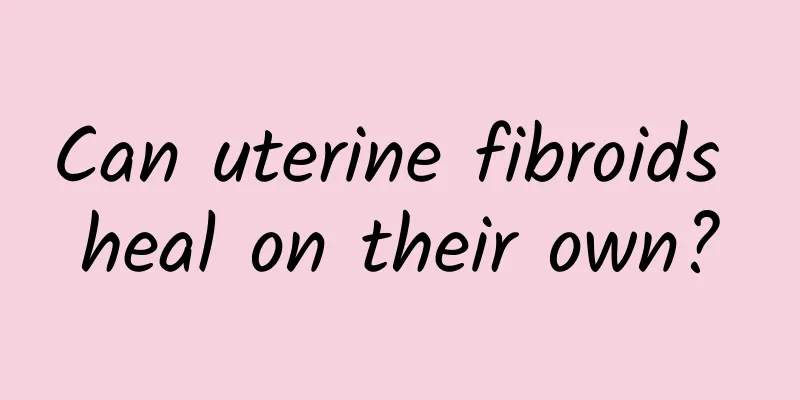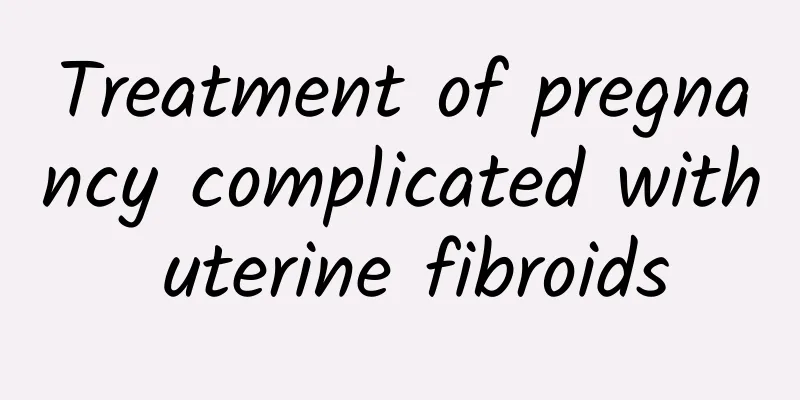Can uterine fibroids heal on their own?

|
Uterine fibroids cannot heal on their own. However, this does not mean that all uterine fibroids require treatment; much depends on the size and location of the tumor and the symptoms it causes. The formation of uterine fibroids is closely related to women's hormone levels, especially estrogen. During the childbearing years, as estrogen levels fluctuate, uterine fibroids may gradually grow. When women enter menopause, estrogen levels drop, and some uterine fibroids may stop growing or even shrink, but this does not mean that they will heal on their own. For uterine fibroids that are asymptomatic or have mild symptoms, doctors usually recommend a watchful waiting strategy with regular examinations to monitor their growth. This conservative management approach does not mean that the fibroids have healed on their own, but rather avoids unnecessary treatment based on their slow growth and low chance of malignancy. If uterine fibroids cause obvious symptoms, such as irregular menstruation, pelvic pain, compression symptoms, or affect fertility, active treatment is required. Treatment methods include medication to relieve symptoms, or surgical removal of the fibroids or even the uterus. The specific plan should be determined based on the patient's age, fertility needs, and the specific situation of the fibroids. In addition to medical treatment, lifestyle adjustments can also help control the growth of uterine fibroids. Maintaining a healthy diet, reducing the intake of high-fat foods, increasing the proportion of fruits and vegetables, maintaining a proper weight, and exercising regularly can slow down the growth of fibroids to a certain extent. Although uterine fibroids cannot heal on their own, through reasonable medical observation and treatment, as well as lifestyle adjustments, most patients can effectively control the disease and maintain a good quality of life. It is important that regular check-ups and communication with doctors are the key to ensuring health. When facing uterine fibroids, we should maintain a scientific attitude, neither panic nor ignore its potential risks. Under the guidance of a doctor, choosing the most suitable management strategy is a solid step for every patient to move towards health. |
<<: Is 20mm of pelvic effusion serious?
>>: What is the differential diagnosis of ovarian cysts? What are the symptoms of ovarian cysts?
Recommend
How much does an abortion cost?
How much does an artificial abortion cost? Artifi...
What are the symptoms and phenomena of female cervicitis? Female friends can check themselves and intervene as soon as possible
What are the symptoms and phenomena of female cer...
Can’t lose weight on your legs? Learn 6 exercises to reduce edema and say goodbye to annoying elephant legs
Are you always troubled by the annoying leg edema...
What is the diagnosis of chronic pelvic peritonitis?
What kind of examinations do patients with pelvic...
Why do you need to do a gynecological examination before abortion?
Although modern medicine is very advanced and art...
How to care for women with cervical erosion? Five key points to remember when caring for patients with cervical erosion
1. Strengthen exercise to improve your immunity I...
Experts explain the hazards of four common uterine tumors
Uterine tumor is a gynecological disease that ser...
What are the nursing methods for uterine effusion?
One of the diseases that women are very afraid of...
Which is better, medical abortion or curettage? What should be paid attention to in medical abortion?
Generally speaking, if no contraceptive methods a...
Chinese medicine to relieve chocolate cysts
What are the treatment drugs for chocolate cysts?...
Three common causes of female uterine adnexitis
Due to some characteristics of the female body, m...
What are the symptoms of cervical warts?
What are the symptoms of cervical warts? Cervical...
Between fat and thin! Find the secret to a healthy gut
Whether a person is fat or thin is actually relat...
How to prevent Bartholinitis?
Bartholinitis is mainly caused by bacterial infec...
During the Spring Festival, you may be stuck in traffic and hold your urine. Be careful of bacteria "going upstream"! Doctor: If these three types of people hold their urine, there may be serious consequences
During the Chinese New Year holiday, traffic jams...









